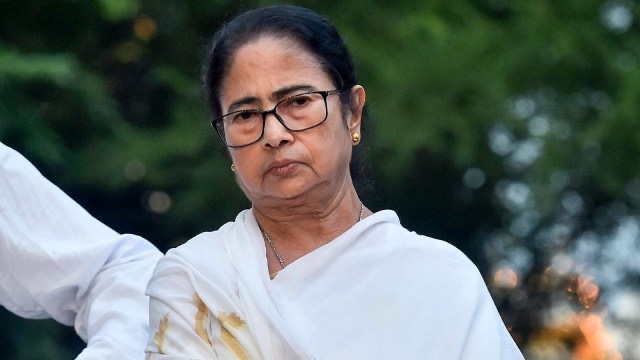Mamata Banerjee Declares COVID-19 Endemic, Signals Robust Healthcare Response
In a recent address from Howrah, West Bengal Chief Minister Mamata Banerjee announced that COVID-19 has transitioned into an endemic phase in the state, signaling a shift from a crisis-driven response to a more integrated approach to managing the virus. Speaking at a press conference, Banerjee emphasized that while the virus remains a concern, there is no cause for alarm. She reassured residents that the state’s healthcare system is well-prepared to handle the current situation, with hospitals equipped to manage cases effectively. This declaration comes as West Bengal reported 54 new coronavirus infections, bringing the total active cases to 747, according to recent health ministry data.
Banerjee’s statement reflects a growing consensus among health experts that COVID-19 is no longer a pandemic but a manageable health issue requiring sustained vigilance. She highlighted that widespread vaccination efforts have significantly reduced the virus’s severity, with most eligible residents having received at least one dose. “We all have to be aware and alert, but there is no need to fear,” she said, urging citizens to seek treatment at state-run hospitals, which are stocked with necessary facilities. This preparedness includes adequate testing capabilities, hospital beds, and medical supplies, ensuring the state can respond to any uptick in cases without overwhelming the system.
The Chief Minister’s meeting with key officials, including Chief Secretary Manoj Pant, focused on bolstering healthcare readiness. Discussions covered coordination across administrative levels, from state to panchayat, to ensure a seamless response. Recent reports indicate that West Bengal’s health infrastructure has been fortified since the pandemic’s peak, with investments in oxygen supplies, ventilators, and trained medical personnel. Banerjee’s administration has also prioritized genomic sequencing to monitor new variants, a proactive measure to stay ahead of potential threats. This approach aligns with national efforts, as India reports 4,000–5,000 active cases across its 1.3 billion population, a relatively low figure compared to earlier waves.
Public health measures remain a cornerstone of the state’s strategy. Banerjee encouraged residents to adopt precautionary measures such as mask-wearing in crowded areas and maintaining hygiene protocols, without resorting to panic. Unlike earlier mandates, no immediate plans exist to reintroduce strict lockdowns or mask mandates, reflecting confidence in the current health system’s capacity. This balanced approach aims to maintain normalcy while addressing the virus’s endemic nature, where periodic surges are expected but manageable.
The declaration has sparked varied reactions. Some residents express relief at the government’s confidence, while others remain cautious, citing past waves that strained resources. Public health experts commend the focus on preparedness but stress the need for continued surveillance and vaccination drives to prevent complacency. Banerjee’s administration has also faced scrutiny over past healthcare challenges, but recent improvements, including a mobile application to address healthcare workers’ concerns, signal a commitment to transparency and responsiveness.
Nationally, the Indian Council of Medical Research (ICMR) supports the view that COVID-19 is transitioning to an endemic state, with ongoing research to guide policy. West Bengal’s strategy aligns with this, emphasizing testing and treatment over restrictive measures. The state’s experience with managing large-scale events like the Gangasagar Mela during the pandemic demonstrates its capacity to balance public health and socio-economic activities.
As West Bengal navigates this new phase, Banerjee’s message is clear: vigilance, not fear, is the way forward. The state’s healthcare system, bolstered by lessons from the past, stands ready to address COVID-19 as an endemic challenge. By prioritizing preparedness, testing, and public awareness, the administration aims to ensure that residents can live with the virus without disruption. As one health official noted, “It’s about adapting to a new normal where we manage the virus like other seasonal illnesses, with robust systems in place.” With these measures, West Bengal is poised to set a model for endemic management, blending caution with resilience.


